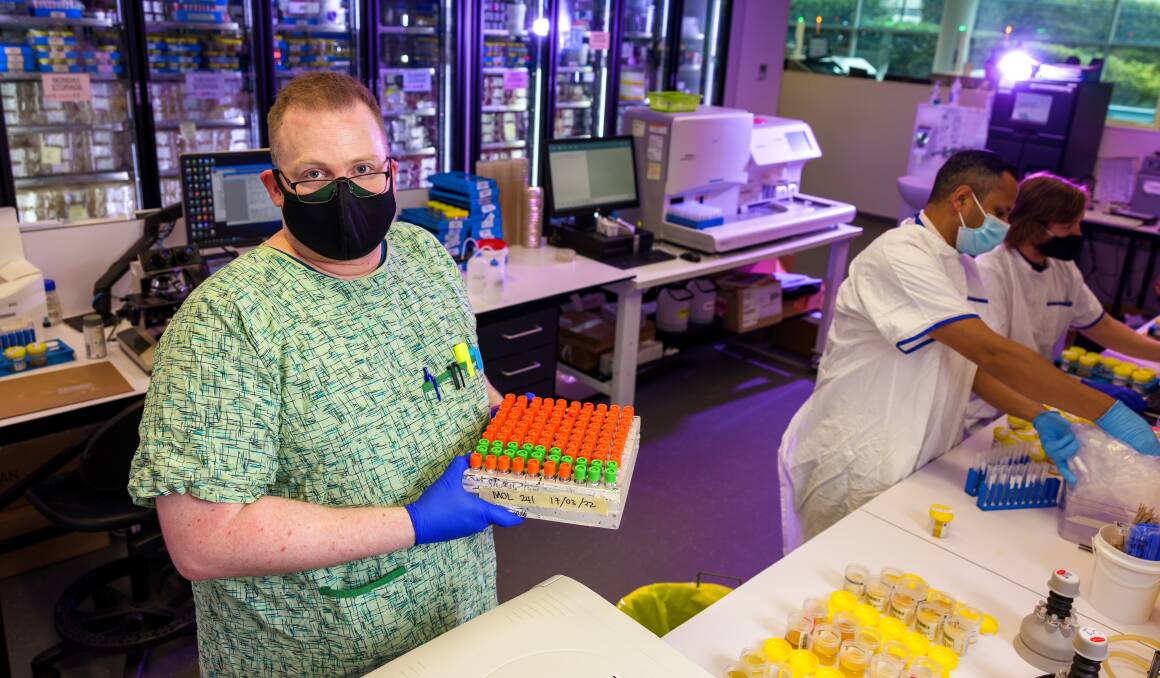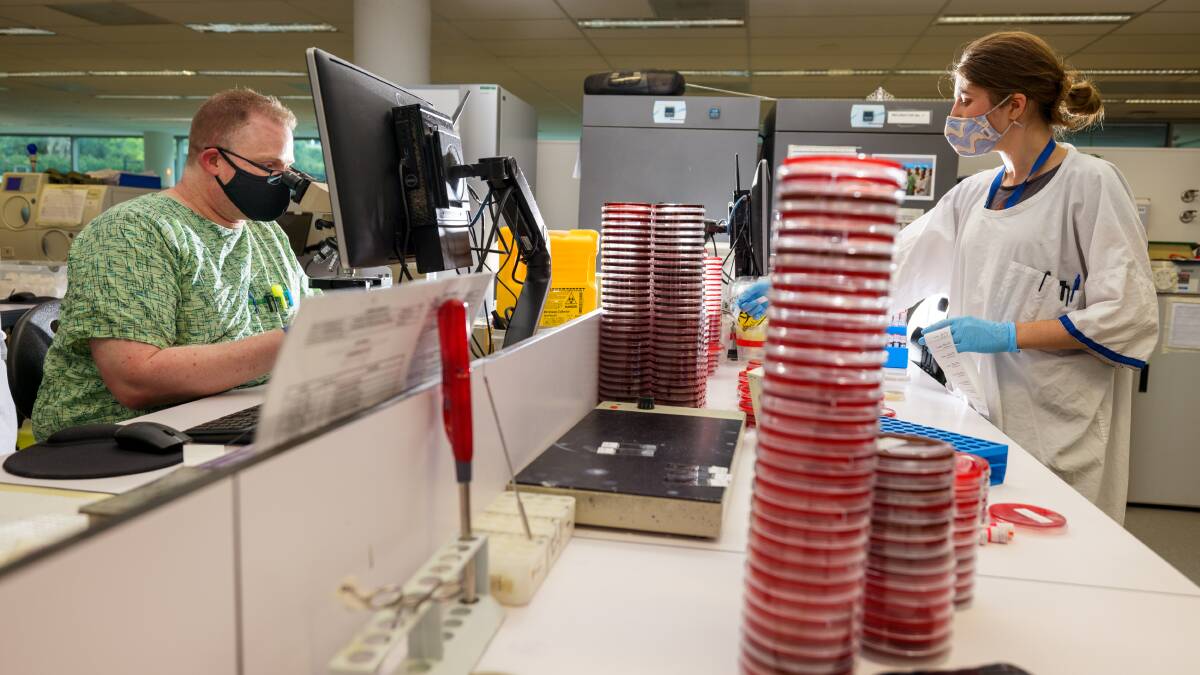
Education authorities are continuing to brace for a growing number of COVID-19 cases in schools before the end of the term, as a more transmissible type of the virus takes hold in the Canberra community.
Pathology labs are also gearing up to handle a larger number of samples, as more people are forced to present for a test amid the spike in community infections.
The ACT reported 1311 cases of the coronavirus on Thursday, the highest daily number of new infections since January 19. Hospitalised cases have remained steady, with 39 patients in care at 8pm on Wednesday.
Health authorities had predicted the number of cases in the community would grow, as the BA.2 sub-lineage of COVID-19, which is understood to be more easily transmitted but no more severe, spreads through the population.
The Education Directorate said it held no data on COVID-19 transmission in schools, meaning teachers and students were in the dark about the real-world risk spending time in the classroom poses.
"COVID-19 is circulating in the community and it is not possible for the Education Directorate to determine where cases have been transmitted," the spokesman said in a statement.
"The presence of COVID-19 cases on schools grounds does not indicate that those cases were acquired in a school setting," the spokesman said.
The Canberra Times requested an interview with Education Minister Yvette Berry on Thursday, but was instead provided with a statement.

The statement said the Education Directorate was not considering moving the upcoming school holiday forward if teaching staff shortages meant schools could not be kept open for students.
"The ACT government has the necessary plans in place to deal with varying levels of COVID disruption to staffing across schools and this is an issue we are monitoring closely," the spokesman said.
"Overwhelmingly, teacher absences in ACT public schools in term 1 have been managed through the use of existing school resources or teacher relief pools. All ACT public schools have been operational during term 1 and no schools have been required to move to remote learning."
Meanwhile, Capital Pathology was preparing to increase the number of COVID-19 test samples it handled each day.
Last week, its laboratory in Canberra was processing about 1500 tests a day, but that rose to 2000 this week.
The medical director of the lab, Dr Paul Whiting, said it had the capacity for more testing. At the peak of infections in December and January, the laboratory was processing 6000 tests a day.
Dr Whiting said that one big change was that more people were now testing themselves with rapid tests, and then telling the authorities if there was a positive result.
"There's more emphasis on the public self-testing and reporting the result to the government. We didn't have that kind of testing in 2021. It has taken the pressure off labs. We do have spare capacity," Dr Whiting said.
ACT acting chief health officer Dr Vanessa Johnston has previously said that authorities would have to lean on rapid antigen tests if the a spike in cases resulted in PCR testing pressures.
"If we start to see significantly higher numbers again we'll need to rely more heavily on our rapid antigen test stock, which luckily is flowing more freely than it was in the summer," Dr Johnston said last week.
Aspen Medical group medical director Andrew Jeremijenko, who is an epidemiologist, feared a sense of complacency was helping to contribute to the rise, coupled with the BA.2 sub-lineage and fewer public health measures.
"[COVID is spreading due to] the relaxing of mask wearing, a general sense of COVID-restriction fatigue in the community where people are simply less cautious, the weather has been average for weeks on end meaning more people staying indoors where there is poor ventilation, waning vaccine immunity and our schools are back," he said.
Dr Jeremijenko said the effective reproduction rate of the virus was the key metric, it is currently above one in the ACT and this meant it was spreading. He said boosters were still the key in the virus fight.
He contributed to recent research that showed the booster was associated with a 49 per cent reduction in symptomatic COVID infections.
"We are seeing these long-term effects from COVID ... it's still a serious disease but there appears to be a complacency around getting a booster," Dr Jeremijenko said.







